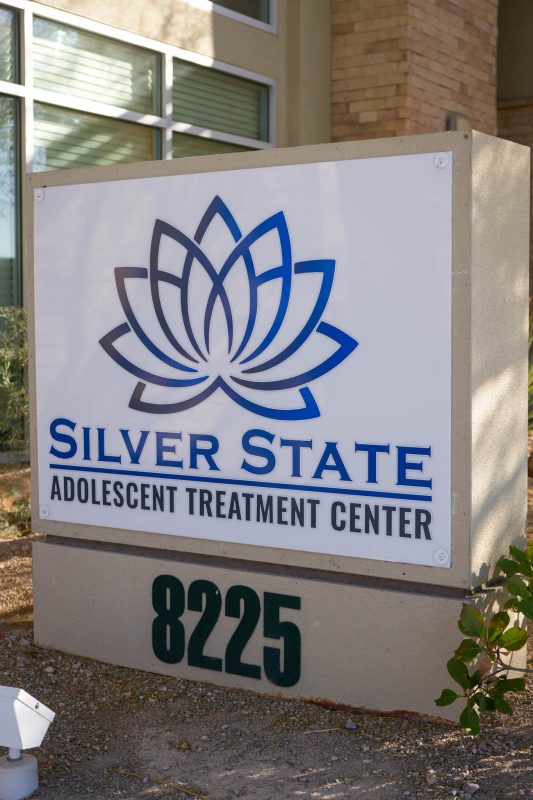Teen Avoidant Restrictive Food Intake Disorder (ARFID) Residential Treatment Program
What We Do

Behavioral Therapy

Trauma-Informed Care

Holistic Treatment Therapy
ARFID Treatment Program for Teens
ARFID isn’t about body image or weight loss—it’s about fear, anxiety, and sensory overwhelm. Teens with ARFID may avoid eating because of how food looks, smells, feels, or because of traumatic experiences related to eating. Some teens fear choking, vomiting, or becoming sick. Others are simply overwhelmed by texture or taste.
Left untreated, ARFID can lead to severe nutritional deficiencies, stunted growth, anxiety, social withdrawal, and emotional isolation. At Silver State, we treat ARFID with patience, structure, and empathy—never pressure or force.
Our residential program provides consistent therapeutic support and supervised exposure to food in a safe, nurturing space. With individualized plans and 24/7 clinical care, we help teens slowly and confidently reconnect with food, reduce anxiety, and reclaim their quality of life.


What is ARFID?
Avoidant/Restrictive Food Intake Disorder (ARFID) is an eating disorder characterized by a persistent avoidance or restriction of food. This behavior is not motivated by a desire to lose weight or change body shape, but often tied to:
Sensory sensitivity to food texture, color, or smell
Intense fear of choking, vomiting, or allergic reactions
Lack of interest in eating or low appetite
Traumatic experiences associated with food or eating
ARFID can lead to weight loss, nutritional imbalances, delayed growth, or reliance on supplements or feeding tubes. Teens with ARFID may also avoid social situations that involve food, increasing feelings of isolation and anxiety.
Signs and Symptoms of ARFID in Teens
Recognizing ARFID in teens can be challenging. Unlike other eating disorders, there is no fear of gaining weight—but the behaviors can still have serious medical and emotional consequences.
Common signs include:
Limited food choices or “safe foods” only
Extreme pickiness or food aversion
Avoiding food due to fear of choking or vomiting
Eating very slowly or with visible anxiety
Weight loss or failure to gain expected weight
Nutritional deficiencies or fatigue
Anxiety or panic during meals
Avoidance of food-related social events
If your teen is showing signs of ARFID, our residential program offers the professional guidance and compassionate care needed to make meaningful progress.


Why Individualized Plans Matter for Teens with ARFID
No two teens experience ARFID in the same way. Some avoid food due to trauma or fear, while others have intense sensory responses. At Silver State, we begin each teen’s journey with a comprehensive assessment to understand their medical, emotional, and behavioral needs.
From there, we design an individualized plan that may include:
Gradual exposure to feared or avoided foods
Sensory integration and desensitization therapy
Anxiety and emotion regulation skills
Supervised therapeutic meals
Family education and mealtime coaching
Medical monitoring and nutritional support
Mindfulness, movement, and expressive therapies
With gentle, consistent support, teens begin to feel safe enough to explore new foods and manage their anxiety more effectively.
The Silver State Adolescent Approach
At Silver State, we don’t force or pressure teens with ARFID to eat. Instead, we meet them with understanding, patience, and clinical skill—offering support that builds trust, reduces fear, and promotes healing from the inside out.
Our residential program offers a safe space where food is approached with care, not control. We support each teen’s pace while encouraging progress, emotional growth, and reconnection with their own body’s needs.
Recovery from ARFID takes time—but with the right environment, tools, and support, teens can overcome their fear and learn to nourish both their bodies and their lives.
Contact Silver State Adolescent Treatment
Please fill out the form to get started and someone from our admissions team will be reaching out to you shortly.

Teen Eating Disorders We Treat
FAQs About Teen ARFID Residential Treatment
Unlike anorexia, ARFID is not driven by a desire to lose weight or body image concerns.
Yes. It can lead to malnutrition, emotional distress, and severe medical issues if untreated.
Very limited food variety, strong food aversions, fear of eating, significant weight loss, or reliance on nutritional supplements.
With exposure therapy, CBT, nutrition counseling, sensory desensitization, and trauma-informed care.
Yes. We provide a therapeutic academic environment with licensed teachers and accommodations.
Yes. Weekly family therapy, coaching, and education are crucial parts of our approach.
No. It’s a diagnosable eating disorder rooted in anxiety, sensory sensitivity, or trauma.
Not without support. Early treatment greatly increases the chances of lasting recovery.
Yes. With support and structure, many teens develop a healthy, balanced relationship with food.
Yes. ARFID can cause malnutrition, growth delays, and severe social and emotional issues if untreated.
Get Started
At Silver State Adolescent Treatment, we understand how important your questions and concerns are. For immediate assistance or detailed inquiries, please fill out our contact form so our team can respond quickly.
Our compassionate staff is here to provide personalized support tailored to your teen’s needs.
You can also reach us directly using the contact information below. Together, we’ll take the first steps toward your teen’s mental health and recovery.







